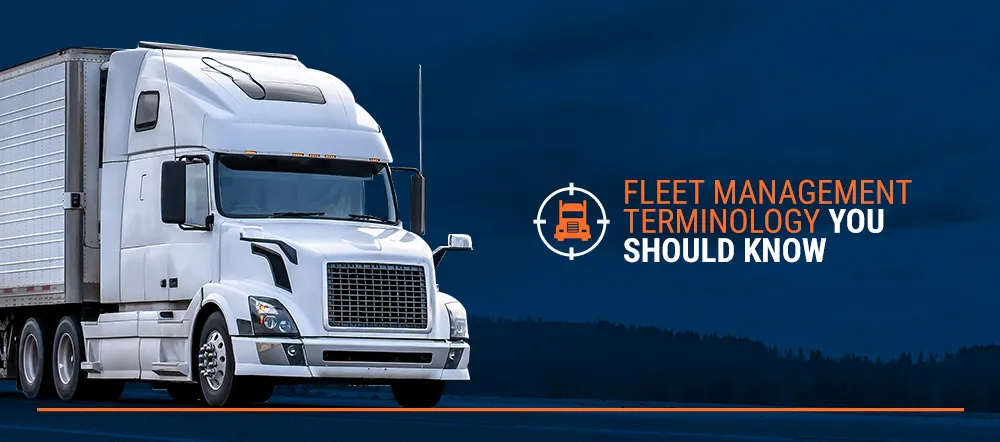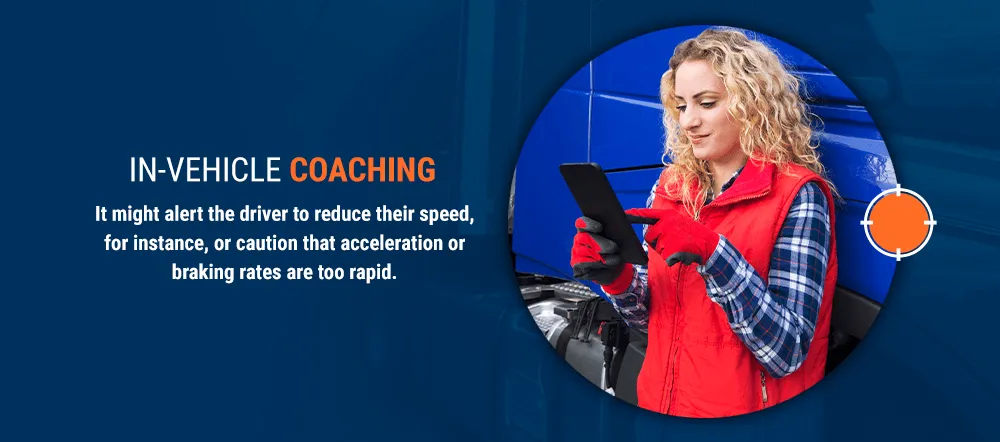

When you’re responsible for a fleet of trucks, being conversant in industry lingo can make your management practices flow much more smoothly. The guide below will discuss some essential terms for fleet management and help you figure out how to incorporate them into your management strategies.
What is fleet management? Fleet management involves overseeing and optimizing all areas of fleet operations to improve efficiency and minimize risks to your company.
Knowing the terms for telematics operations is particularly important. Using telematics to combine the latest technology with your transportation services gives your business the data it needs to boost efficiency and make more informed decisions.
In any case, when your company is getting serious about fleet management, you’ll need to have a firm grasp of the applicable terminology so you can improve your strategies. If you become familiar with terms like those below, you’ll be well on your way toward improved fleet management and organizational success.
Below is some of the most important fleet management and telematics management terminology to know:
Active tracking is the minute-to-minute tracking achievable with many GPS tracking systems. When you use this technology, you can monitor your trucks’ routes in real-time and form a precise and immediate picture of their whereabouts.
An API is essentially the language a computer uses to provide data to different systems. For the best system integration within your fleet management strategy, the various APIs you use will need to communicate with one another.
Data visualization is the practice of turning fleet management data into a visual representation that’s easier to interpret and use. A computer software dashboard, for instance, might show visualizations of different routes, traffic conditions, driver miles per gallon, daily idling averages and safe driving behaviors.
Fleet optimization is the practice of enhancing many areas of fleet operations, often by using the data gained through telematics. For instance, a company might use different metrics to assess and improve idling time, fuel economy, vehicle emissions, route efficiency, driver safety and vehicle maintenance.
Geofencing is one of the most important terms to know for using fleet management technology. It is the practice of marking off a virtual boundary on the map to designate an enclosed area for monitoring. For example, with a GPS tracking system, you can often create a geofenced space of any size, and the system will update you when your fleet vehicles enter or leave the fenced area.
You can use this functionality to track travel, ensure vehicles remain on the job site, monitor unauthorized use and reduce vehicle theft.
GPS fleet tracking uses satellite technology to give you potentially up-to-the-minute information on your fleet vehicle locations. At Track Your Truck, for instance, our GPS fleet tracking services use both GPS devices and intuitive, easy-to-use software to make fleet tracking easy, informative and productive.

In-vehicle coaching involves improving driver behavior with the help of an in-cab monitoring device. A device might provide visual or audiovisual alerts when a driver engages in undesirable behavior. It might alert the driver to reduce their speed, for instance, or caution that acceleration or braking rates are too rapid.
The IFTA is an agreement between Canada and the contiguous United States that simplifies fuel use reporting for fleets operating in multiple jurisdictions. For those companies, effective fleet management often means making good use of the automated reporting available to reduce accounting time and ensure accurate calculations.
Near-field communication enables devices to communicate with each other if they are within range. One device may receive a unique signal from another nearby device and grant access, for instance. For commercial fleet management, near-field communication is useful for verifying driver identity and allowing only authorized personnel to access certain vehicles.
The onboard diagnostics port known as the OBD-II port allows fleets to install and run in-cab diagnostic devices. It differs from earlier OBD generations because it is fully integrated into the truck rather than relying on an external connection.
The diagnostic devices plug into the port to access data from the engine’s computer and provide live trip and engine data. Effective fleet management often uses these devices to determine maintenance needs, diagnose engine problems and monitor driver behaviors like idling and speeding.
Passive tracking works like active tracking except that it updates much less frequently. A passive tracking system for vehicles may update only a few times a day versus every couple of minutes. It does not provide the real-time monitoring capabilities you can attain with active tracking.
PTO refers to the process of drawing power for a device from an already-running power source. Many of the devices used in fleet management, such as GPS trackers, can monitor PTO usage in order to alert a fleet manager that the PTO has been engaged. Examples include tow truck lifts and bed deployments.
Scalability refers to how well your procedures will grow and adapt as your business grows. To manage your fleet most effectively, you’ll want to invest in solutions that are highly scalable and will adapt to meet your evolving needs.
Vehicle telematics is the science of applying telecommunications and data science to vehicle operations. Vehicle telematics encompasses many systems and applications like these:
Vehicle telematics is useful for improving a fleet’s data collection, efficiency, system integration, productivity, communications and safety.

To start using fleet management technologies like GPS truck tracking, partner with Track Your Truck.
Our GPS tracking devices and software give you the tools you need to optimize your fleet operations. They enable you to:
We also pride ourselves on our in-house capabilities and fast, friendly customer support. We perform all system upgrades ourselves, so we have complete control over the process and can resolve issues immediately and effectively. We are also happy to consult with you about how our systems can meet your fleet’s unique transportation challenges.
Request a quote today to learn more about how Track Your Truck can make your fleet more efficient and profitable.